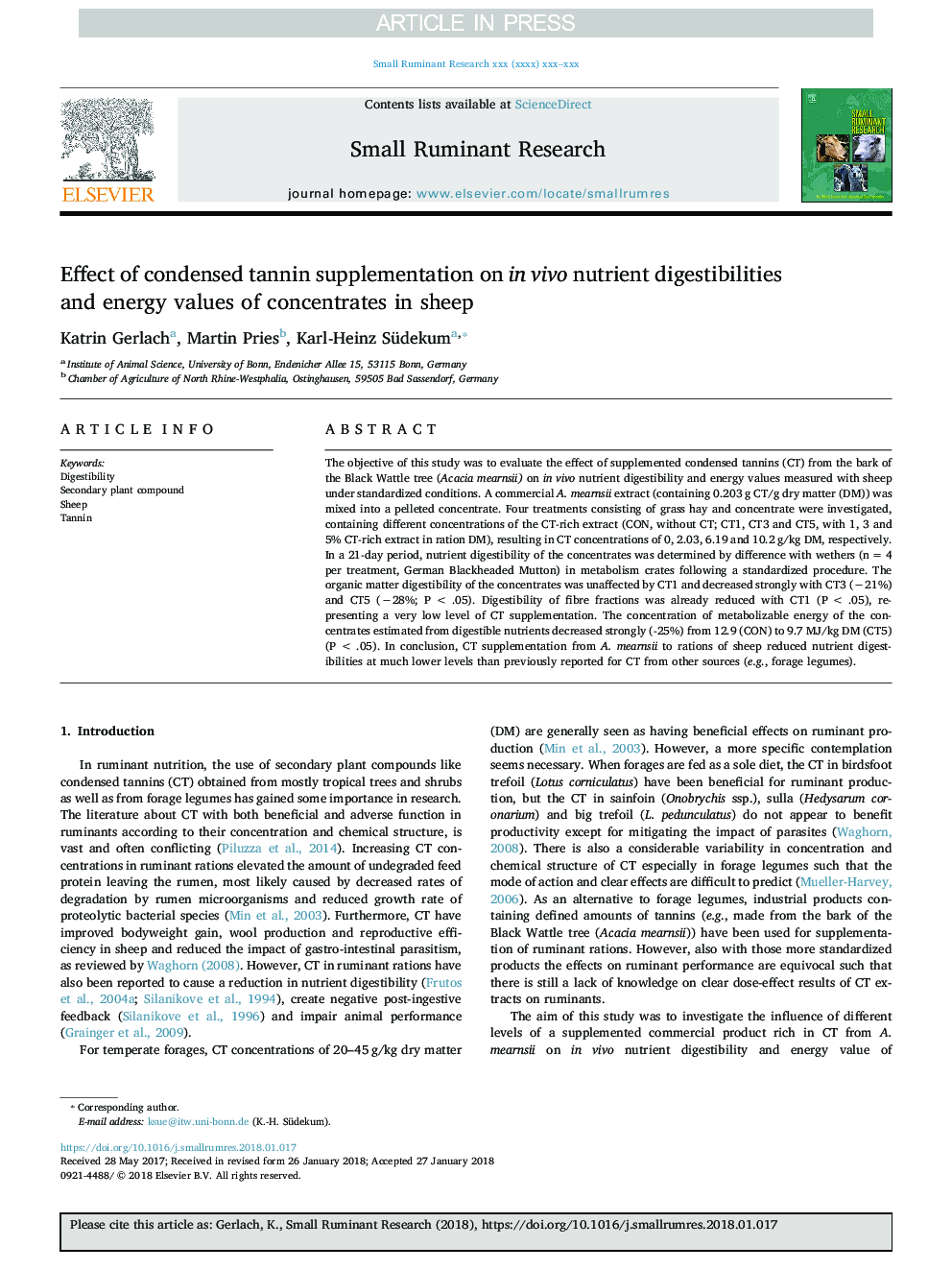| Article ID | Journal | Published Year | Pages | File Type |
|---|---|---|---|---|
| 8504231 | Small Ruminant Research | 2018 | 6 Pages |
Abstract
The objective of this study was to evaluate the effect of supplemented condensed tannins (CT) from the bark of the Black Wattle tree (Acacia mearnsii) on in vivo nutrient digestibility and energy values measured with sheep under standardized conditions. A commercial A. mearnsii extract (containing 0.203â¯g CT/g dry matter (DM)) was mixed into a pelleted concentrate. Four treatments consisting of grass hay and concentrate were investigated, containing different concentrations of the CT-rich extract (CON, without CT; CT1, CT3 and CT5, with 1, 3 and 5% CT-rich extract in ration DM), resulting in CT concentrations of 0, 2.03, 6.19 and 10.2â¯g/kg DM, respectively. In a 21-day period, nutrient digestibility of the concentrates was determined by difference with wethers (nâ¯=â¯4 per treatment, German Blackheaded Mutton) in metabolism crates following a standardized procedure. The organic matter digestibility of the concentrates was unaffected by CT1 and decreased strongly with CT3 (â21%) and CT5 (â28%; Pâ¯<â¯.05). Digestibility of fibre fractions was already reduced with CT1 (Pâ¯<â¯.05), representing a very low level of CT supplementation. The concentration of metabolizable energy of the concentrates estimated from digestible nutrients decreased strongly (-25%) from 12.9 (CON) to 9.7â¯MJ/kg DM (CT5) (Pâ¯<â¯.05). In conclusion, CT supplementation from A. mearnsii to rations of sheep reduced nutrient digestibilities at much lower levels than previously reported for CT from other sources (e.g., forage legumes).
Keywords
Related Topics
Life Sciences
Agricultural and Biological Sciences
Animal Science and Zoology
Authors
Katrin Gerlach, Martin Pries, Karl-Heinz Südekum,
